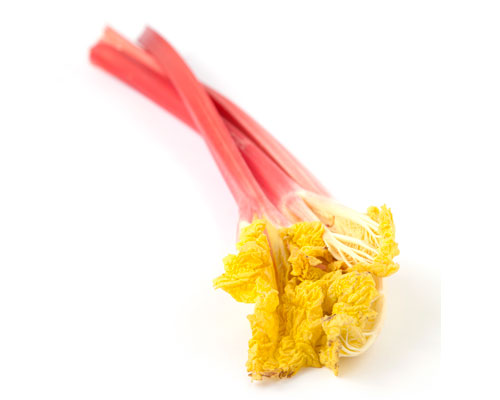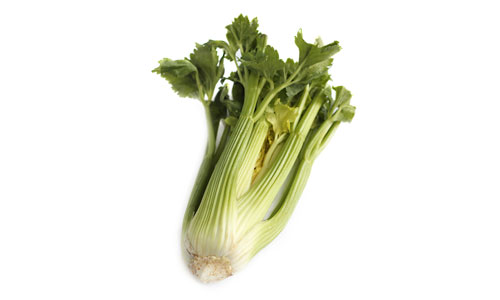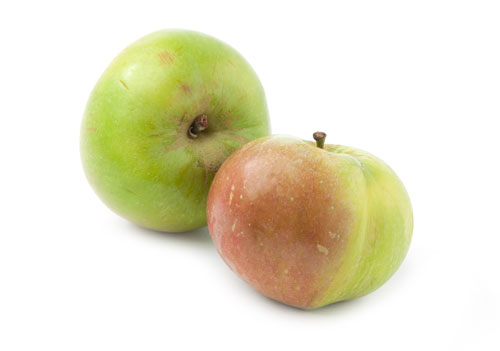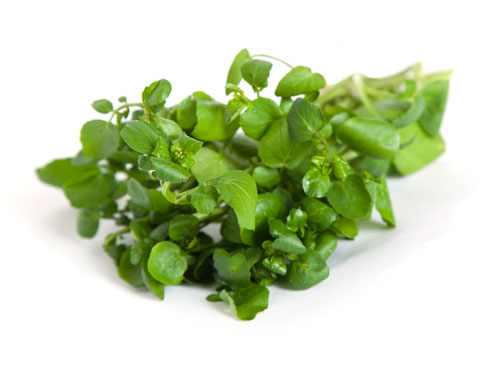Tutored tasting: Protected produce
Now is the time to enjoy the best of British products and, with the help of the EU Protected Food Name scheme, chefs can have confidence they are getting the quality they expect from British specialities.
Here, British growers Tom Amery of the Watercress Alliance and Janet Oldroyd of E Oldroyd & Sons rhubarb, both of whom supply New Covent Garden Market, talk to The Caterer about some of the features of protected UK fruit and veg.
Yorkshire forced rhubarb (PDO)
Flavour and notes - Forced rhubarb is famous for its neon pink colour, tender stems and low acidity compared to outdoor-grown rhubarb. When cooked, it is very tender and the flavour is delicate.
Comments See 'What the grower said' below.
Fenland celery (PGI)
Flavour and notes Fenland, or late (winter) celery has a reputation for being the highest quality, best-tasting celery. It is crisper and less stringy than most modern varieties and has a more evenly balanced sweet/salty/bitter flavour ratio with mild aniseed notes. Its stem has a whiter colour than modern celery varieties.
Comments Fenland celery was granted PGI in 2013. Only celery grown and harvested in specific parts of Cambridgeshire, Suffolk and Norfolk can be sold as Fenland celery.
Traditionally, Fenland celery is grown in wide rows that are separated by deep trenches. As it grows, the trenched earth is banked up around the plant to prevent sunlight reacting with it and turning it green, ensuring it retains its characteristic white colour. It has a short season - from October to January - and is harvested by hand using a knife.
Jersey Royal potatoes (PDO)
Flavour and notes Jersey Royals are small kidney-shaped potatoes with delicate skins that rub off easily. On the wholesale market they are often sold 'dirty' to keep the delicate skin intact. They are graded into three sizes: ware, small ware and mids (the smallest). The texture is firm and waxy with a nutty, earthy flavour.
Comments Veterans of the Protected Name Scheme, Jersey Royal Potatoes gained PDO status in 1996 and have been grown exclusively on the island of Jersey for over 130 years. The very first Jersey Royals arrive on the wholesale market in early March - however, nowadays these are grown in glass houses and, although their arrival is a welcome sign of spring, the outdoor-grown kind, available towards the end of March, has a better flavour and is better value. The peak of the season is May, when up to 1,500 tonnes of Royals can be exported from Jersey daily.
Armagh Bramley apples (PGI)
Flavour and notes Armagh Bramley apples are large, tangy cooking apples, typically with light green skin with red blush and an irregular shape. They tend to be firmer in texture than other Bramley apples and, being high in malic acid and low in sugar, they retain their strong flavour throughout cooking.
Comments Armagh Bramley apples gained PGI status in 2012 and are grown in the parishes of County Armagh in Northern Ireland (known as Orchard County).
Lower temperatures in the region coupled with the substantial hedgerows surrounding the orchards provide protection from the northerly winds.
Watercress (TSG)
Flavour and notes Watercress is at its best in spring and autumn - at the start and end of its season. Buy it locally and use it quickly. On the market it comes in insulated boxes topped with ice which keeps it fresh and allows its peppery and mustardy spice to sing out. It is highly nutritious and packed with vitamin A and C, magnesium, iron, calcium and folic acid.
Comments See 'What the grower said', below.
What the grower said
Tom Amery from the Watercress Alliance
"British growers have been cultivating watercress in flowing water for over 130 years. Many of the sites in Hampshire and Dorset still use the same beds today as when production started.
"We applied for Traditional Speciality Guaranteed protected status because the traditional production of watercress grown in free-flowing water is being threatened by a rise in soil-grown imitations. Growing watercress in soil doesn't provide the same conditions needed for the plant to develop its full characteristics, which are derived from nutrients in the spring water and have helped watercress gain its reputation as a 'superfood'.
"We are looking for recognition of the traditional production methods and their unique benefits, so customers can make an informed choice about what they are buying. We are pleased to be at the final stages of approval - if successful, only plants grown in traditional flowing water beds will be allowed to be sold as 'watercress'."
Defra has approved the watercress application for Traditional Speciality Guaranteed (TSG) and the application is currently under EU scrutiny.
Janet Oldroyd, Yorkshire forced rhubarb grower
"Chefs know that with Yorkshire forced rhubarb they are going to get the flavour and characteristics they are looking for. The Protected Designation of Origin (PDO) mark helps with that. Since being awarded the mark in 2010, our forced rhubarb has become much more attractive for commercial use in products such as preserves.
"It's not just a stamp of approval for flavour, but each grower must undergo regular audits to show that their forced rhubarb is produced in the same traditional way. People can be sure they are getting the quality they expect."
"Yorkshire forced rhubarb was granted PDO status in 2010. It's grown within a specific area historically termed the 'Yorkshire Rhubarb Triangle', located between Leeds, Wakefield and Bradford. The shadows of the Pennines act as a frost pocket, keeping the area cold and damp.
"The rhubarb is grown in open fields for two years. The root systems are then carefully lifted and moved by hand to the insulated sheds. Light is excluded from the sheds and the stems are picked by candlelight."
EU Protected Food Name scheme categories
Protected Designation of Origin (PDO) Products must be produced, processed and prepared in the geographical area. The quality or characteristics are essentially due to that area.
Protected Geographical Indication (PGI) Products must be produced or processed or prepared in the geographical area. Specific quality, reputation or other characteristics are attributable to that area.
Traditional Speciality Guaranteed (TSG) Name must be specific in itself or express the specific character of the foodstuff. It must be traditional, or established by custom (in order to be 'traditional', proven usage on the market during at least 30 years is now required). Distinguishing features of the product must not be due to the geographical area the product is produced in, nor entirely based on technical advances in the method of production.
Contact
New Covent Garden Market














